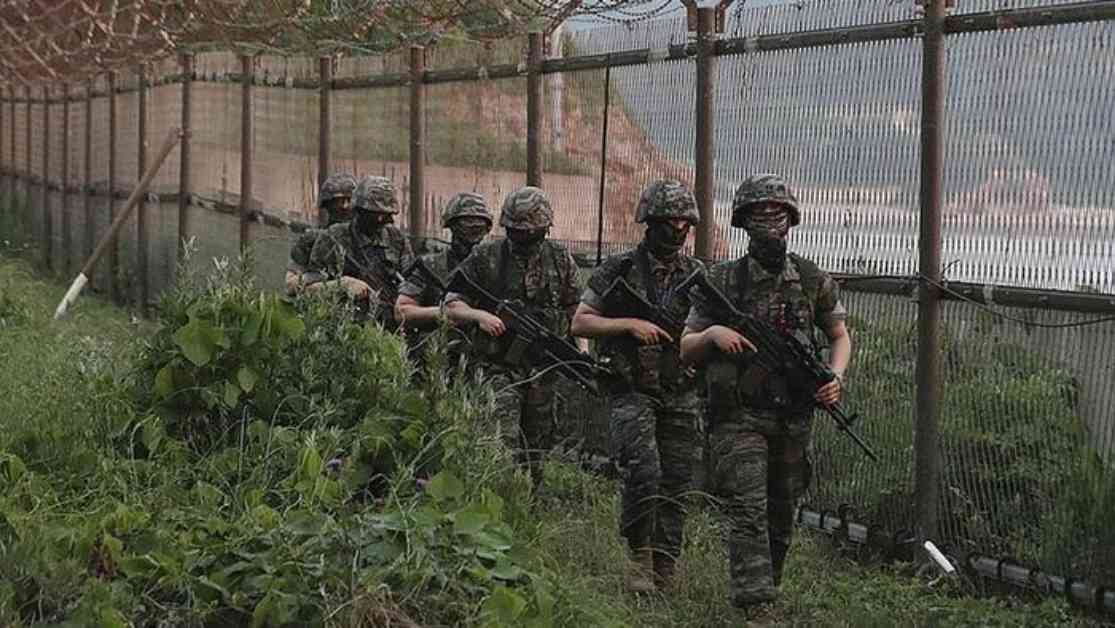Tensions continue to escalate on the heavily militarized Korean border, with reports of North Korean soldiers briefly crossing the border and causing casualties. The South Korean military fired warning shots after the soldiers crossed the Military Demarcation Line near the border, according to the Yonhap news agency. This incident comes after North Korea flew trash and feces-filled balloons into the south, further increasing tensions in the region.
Last week, a live fire incident occurred when South Korean border forces fired warning shots after North Korean troops ‘accidentally’ crossed the border. The South Korean Joint Chiefs of Staff spokesman downplayed the incident, stating that there were no indications of an invasion by the enemy troops. However, if casualties among the North Korean troops are confirmed, this could lead to a major escalation between the two countries.
Recent reports indicate that North Korean troops have been observed constructing anti-tank barriers and reinforcing roads within the Demilitarized Zone. This activity has raised concerns about the military buildup near the border. Additionally, North Korean troops have been seen building walls and roads between the Military Demarcation Line and the DMZ, spanning 150 miles across the Korean Peninsula.
The nuclear saber-rattling from Pyongyang has been ongoing since last summer, especially after the US Navy deployed a nuclear submarine in South Korea for the first time in years. With reports of extra troops being deployed to the border, the situation remains volatile and unpredictable.
As tensions continue to rise, the international community is closely monitoring the situation on the Korean border. The threat of a major conflict between North and South Korea looms large, and any miscalculation could have severe consequences for the region. It is essential for both sides to exercise restraint and prioritize diplomatic solutions to avoid further escalation and potential conflict.













